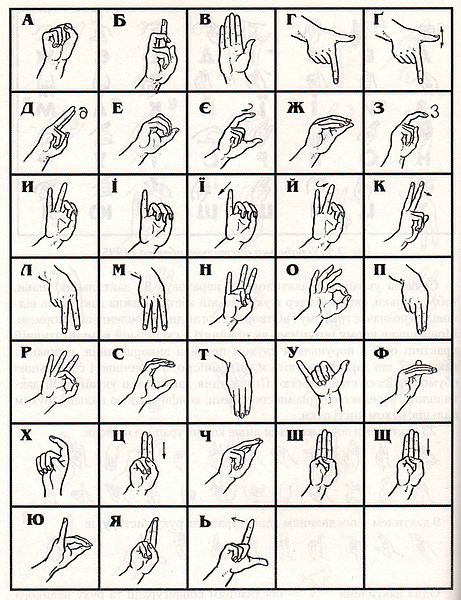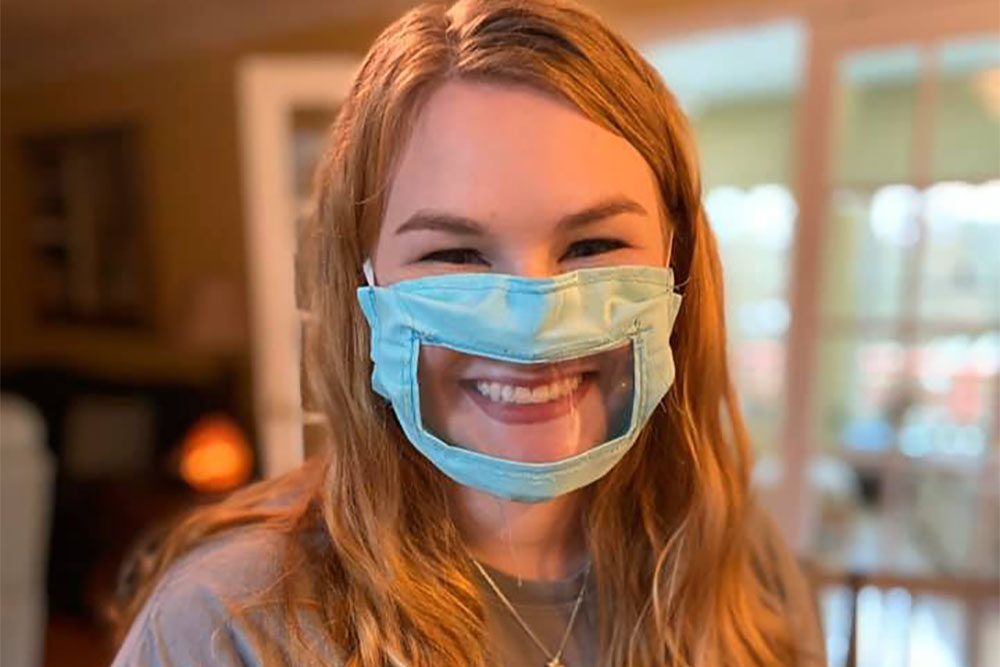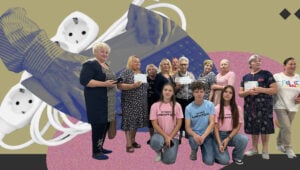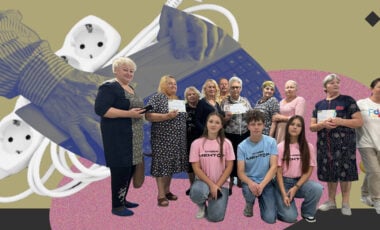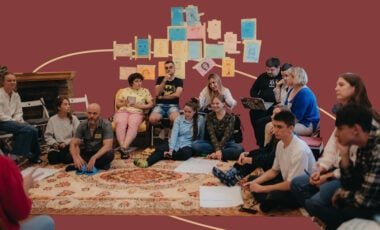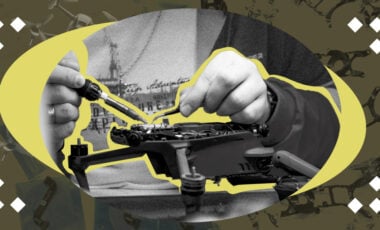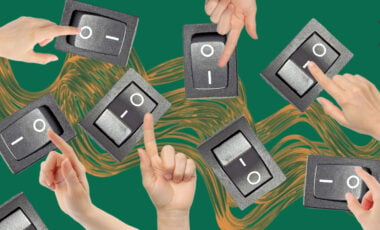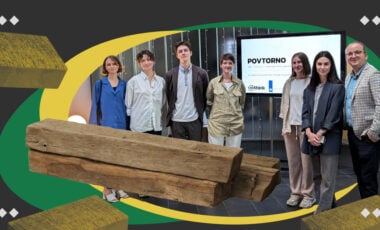Pandemic is a disaster for the deaf. How to communicate with the world in masks
Someone complains about wearing a mask because it's inconvenient and unusual. But there's a category of people for whom masks on faces are another significant barrier in communicating with and understanding the world. We explain how people with hearing impairments experience a pandemic, why this problem affects everyone, and what opportunities sign language hides for everyone.
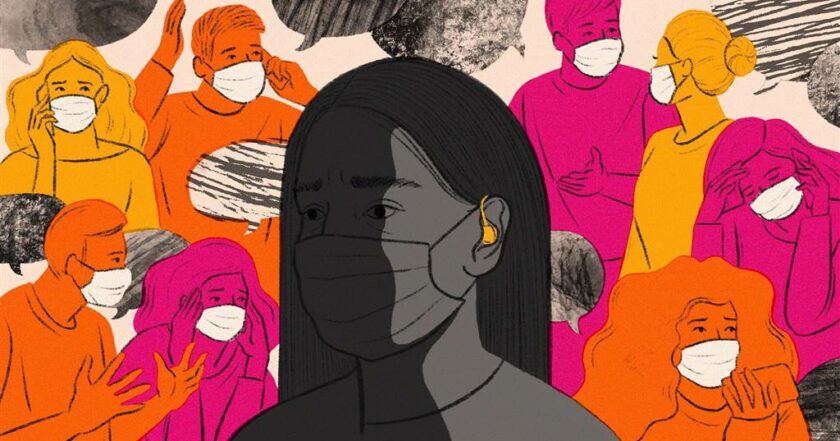
The coronavirus pandemic struck everyone. We had to lock ourselves in four walls for a while, experience panic, distance ourselves significantly from each other, and wear protective masks for a long time.
Seeing the daily statistics in the morning, you understand that a dangerous disease will not give up, and it is the masks, and other personal safety measures, that are staying with us for a long time. For many people, they add a sense of calm and protection from infection, while others wearing a mask feel discomfort and anxiety. According to psychologists, one of the major reasons some people may feel confused by wearing a mask is the channels of nonverbal communication blocking, i.e. facial expressions, through which we build communication with the outside world.
When we don't see the expression on a person's face, it destabilizes us. When we go outside, we want to be confident not only in our safety but also in our understanding of other people, and people's understanding of us. Our nervous system is regulated by non-verbal signals that we constantly receive. When someone smiles at you, your nervous system calms down, and vice versa, you subconsciously distance yourself from people with unfriendly facial expressions. When someone addresses you, you focus not only on the words but also on the facial expression when the words were said. And while most people can get used to such a "limited" dialogue, focusing on tone, volume, or expression, then one of the most vulnerable groups, people with hearing impairments, is virtually deprived of full communication with the community because of the mass wearing of protective masks.
The deal is that the masks don't allow a deaf or hard-of-hearing person to read the lips. It's one of the major complications of deaf people's life caused by COVID-19. Many people, even without hearing loss, try to understand what their counterparts are saying behind their masks. But for those who hear nothing, losing an important part of the communication system is the most painful. The coronavirus pandemic has restored the barriers of communication they encountered in early childhood: "They are together; I am separate from them."
Living in a vacuum
"With the beginning of the coronavirus infection spreading and introducing quarantine measures, negative things happen to deaf and hard-of-hearing people," first deputy head of the Central Board of the Ukrainian Society of the Deaf (UTOG), Tetiana Kryvko, said, "It is primarily a limiting communication and inability to establish communication with a person face to face. The need to wear masks hindered this. After all, one of the crucial elements of communication is the manual component: facial expressions, and articulation, helping to understand and get the minimum of information. Due to the mask, we lose this component. A person finds themselves in a vacuum, being forced to risk the health or look for other ways to communicate. And with that, of course, we have a tremendous problem. Even for me. I am hard of hearing; I use a hearing aid. Recently I had to take part in a meeting in one district administration. I did not disclose that I have hearing problems. At the meeting, everyone was sitting in masks. It was almost impossible to hear anything. I used an application translating voice speech into text. But the program could not recognize everything."
One of the options for getting out of the vacuum could be a mask with a transparent window. First, transparent masks should be provided not only to people with hearing impairments but also to those employees or officials who may meet with a deaf person. In addition, using such masks can also benefit the hearing people, who aren't neurotypical (e.g. with ASD), children in children's institutions and hospitals who need a friendly or reassuring smile, doctors, teachers, and all people who are interested in making their lips visible for effective communication.
Of course, you can't force everyone around to use only transparent masks. So according to the expert, information and communication technologies have become especially necessary, even vital for deaf people allowing them to solve some urgent issues online. For a deaf person, a participating sign language interpreter is very important wherever communication is needed: in almost all institutions, organizations, and establishments for receiving services.
"Meanwhile," Tetiana Kryvko says, "the Ukrainian Society of the Deaf employs only 171 sign language interpreters. In addition, a little over 150 employees provide organizational help in resolving daily appeals of hearing-impaired people throughout Ukraine in the Society's organizations and institutions with 42 thousand people with hearing impairments, members of the Ukrainian Society of the Deaf. The number of current employees doesn't provide the required number of sign language translation services, as personal support by a sign language interpreter involves inefficient time-spending: travel time, waiting in line, etc. The largest number of people whom a sign language interpreter can help is 5-8 people. And for example, in court hearings, the working time will be 4 hours per person."
Where to look for a solution?
The system of remote video communication with a sign language interpreter "UTOG Service" introduced in 2018 by the Ukrainian Society of the Deaf through the most widespread apps, Viber and WhatsApp, helps to decrease the time spent helping people with hearing impairments. Today, "UTOG Service" continues to develop and improve. In particular, they've introduced round-the-clock work, allowing a person with hearing impairments to use the help of a sign language interpreter 24/7. Unfortunately, this wonderful modern solution is accompanied by certain issues that are especially relevant in the countryside: the lack of high-quality high-speed Internet throughout Ukraine, and open Wi-Fi in medical institutions and government agencies, which deaf and hard-of-hearing people could use at any point in Ukraine to connect with an interpreter. The mobile Internet connection is expensive for most people with hearing impairments because you need quite a lot for video chat.
Svitlana Avilenko, the head of Shostkinska territorial UTOG organization, shares her pain: "If you don't get sick, it's great. If you get sick, it's a problem. How to call an ambulance? A family doctor? How to report the symptoms? The solution is direct video communication, but the city authorities don't pay attention to my appeals. To all organizations (Pension Fund, Labor and Social Protection Department, Administration Service Center, etc.), I sent letters requesting to buy tablets, install the "UTOG Service" application, EVERYTHING!!! The communication barrier would be solved instantly. An online translator is available 24 hours a day. You only need gadgets and reliable Internet. This problem exists in all the small Ukrainian towns."
Therefore, they can't do without the state's and local authorities' support. In fairness, something is already being done in this direction.
"With the beginning of quarantine," Tetiana Kryvko continues, "it's not surprising, but some things have changed for the better for the deaf community in Ukraine. Namely, the approach to the availability of official information has changed. Speeches by the Health Minister together with a sign language interpreter have become the norm for everyone. For the first time of lobbying, we have achieved the need for accessible information in sign language for people with hearing impairments in Ukraine. Also, more often, briefings in the Government, Ministry of Social Policy, and on the ground in some regions, are accompanied by a translation into sign language. Slowly, but broadcasting on TV channels with sign language translation is also increasing. All this testifies to drawing attention to the problems of people with hearing impairments, for whom sign language is the primary means of communication and information. The whole of Article 4 of the Law of Ukraine "On Ensuring the Functioning of the Ukrainian Language as the State Language" is devoted to sign language, including b) sub-clause of clause 6 of Article 3 of the same Law.
Sign language isn't just a means of communication for deaf people, but a means of rehabilitation. Only with sign language a deaf person or a person with hearing loss can be fully included in public life and, along with others, receive accessible services, and be active in all spheres of life. The draft Law of Ukraine "On Ukrainian Sign Language" developed with the working group of the Ukrainian Society of the Deaf" is aimed at that.
Why this problem affects everyone
According to the World Health Organization statistics, every 9th Ukrainian has a disorder of some complexity, from complete deafness to a slight hearing loss. Over 70 million deaf people live in the world. According to WHO prognosis, the number of people with hearing impairments could almost double by 2050. Deafness can be congenital. Hearing loss is influenced by the environmental situation, which leaves much to be desired in our country, and by poor vaccination, diseases, and age-related changes. Even such a seemingly innocent hobby as listening to loud music in headphones can lead to hearing problems.
People with hearing impairments are close to us: they work in production, workshops, the IT industry, in the advertising and restaurant business as salespeople, cashiers, taxi drivers. We can solve the problem of communication with people with hearing impairments through a tolerant attitude to hearing impairments, with everyone seeing, first, a person, not the disability and deafness.
So what exactly can each of us do?
- Learn sign language
The attitude towards people with hearing impairments in our country has begun to change. Recently, more people are paying attention to sign language and want to learn it. The simplest is the alphabet used to pronounce auxiliary words, some toponyms, and proper names, and to explain a word's meaning.
NGO "Vidchui" identified several reasons sign language attracts attention and even becomes trendy. So why learn sign language?
- Respect for people. Maybe for someone, it's not a solid reason. Everyone decides for themselves. But the more individuals have basic sign language skills, the more comfortable the lives of people with hearing impairments will be. We can and need to dream: a trend exists.
- Activating finger motor skills has a positive effect on the entire body. Unlike animals, humans can perform very precise actions with their fingers. To carry them out, the hands' neurovascular bundles involve extensive areas of the brain. There is a direct connection: the more we do small work with our fingers, the better we train the brain, and the clearer our consciousness becomes. That is why experts advise doing needlework. And why not learning sign language?
- A new memory training method. If you have ever studied a foreign language, you know that when learning it, you need to remember a lot of information. In particular, the way unfamiliar words sound and the way we write them. With sign language, you'll remember the position of fingers and hands. It's a new job for your brain. All dancers are familiar with the term "muscle memory." While doing a lot of pas in the dance, the dancer doesn't think about all the movements he/she needs to do. Their body remembers them. Sign language is closely related to this memory type, and you need to train it.
- Adding sign language skills to your resume. At first glance, there are very few professions that require sign language. But we can see people with hearing impairments at exhibitions, conferences. They travel and are often socially active. If your job involves communicating with people, you may need sign language, even if you are a regular manager, marketer, or accountant. Now imagine a doctor, police officer, hotel administrator, flight attendant, hairdresser, server, salesperson, and many other professions. Sign language opens up many opportunities for the translators' development.
- Getting new sensations. If you have ever tried something new, you'll understand what it's about. Recall when you first went skiing or skating, flew a plane, saw the ocean, or understood the foreign language you were learning. The feeling of something completely new is unique and unforgettable. Sign language can open up a new world you've never touched before. It's a world of complete silence. You won't only get new sensations but also new opportunities to understand those who constantly live with no sounds.
The Center for Ukrainian Sign Language of the Ukrainian Society of the Deaf (tel. 0993802944, head of the center, Tetiana Zhurkova), can help. It has its own curriculum and teaching methods, and over 5 years of teaching experience.
- Carry stationery
It's a good idea to address people with hearing impairments in writing. A deaf person will appreciate your effort much more if you also use a combination of gestures, facial expressions, and body language. Some deaf people can read lips very well. If one approach doesn't work, try another. If a deaf person communicates with a voice and you don't understand it, immediately tell the person it's better to write information.
- Use a transparent mask
Don't ignore the facts about coronavirus spreading. By removing the mask, or raising your voice so that deaf people can "hear" you, you increase the likelihood of transmitting any infection you may have, to the deaf person you were going to "help", and everyone around you. Wearing a mask with a window, simple gestures or even voice recognition in your mobile phone is much safer and minimizes the risk of infection.
- Don't be afraid to look into the eyes
Deaf people highly value face-to-face communication and consider it an advantage, not a burden. People who cannot hear listen with their eyes. A deaf person cannot help but look at the object and listen (read lips or facial expressions). Speak only when you have eye contact with a person with a hearing impairment.
- Be a responsible employer
If a deaf employee works in a store, one should draw two hands on the front and back of the employee's T-shirt (sign language symbol) or finger speech (hand-alphabet). Then customers will understand that the salesperson doesn't hear them. Stores can also provide such salespeople with notebooks and pens that they can give to the customer so he/she can ask questions in writing.
- Overcome barriers at the local and state levels
"Almost every day, people with hearing impairments have to overcome various obstacles," Svitlana Avilenko says. "After all, the vast majority of institutions in our country are designed for those who hear and speak well. At the moment, the only solution I see is the online translator "UTOG Service." It would be ideal to encourage all willing and officials, like police, ambulance, social and banking institutions, to learn sign language."
- Watch 6 fifteen-minute mini-lectures on basic sign language skills
The video course creator, Maryna Liferova, is the president of the Union of Sign Language Translators and a sign language interpreter. After watching 6 mini-lectures, you'll learn the history of sign language, types of sign languages, and alphabets. Lectures aim to motivate to learn and communicate in sign language so that the native speakers will have more opportunities to interact with the sign language environment.
"Ангеле мій, як я тобі заздрю! – ти говориш цією чарівною мовою і здається, це так легко. Як би я була розумнішою, мої руки змогли б літати як твої..""За межею тиші", Німеччина, 1996
Posted by Маріна Ліферова on Friday, October 16, 2020
Such educational bricks contribute to the development of an inclusive, equal society. People with hearing impairments, unfortunately, cannot hear others, but they would very much like to be heard.







